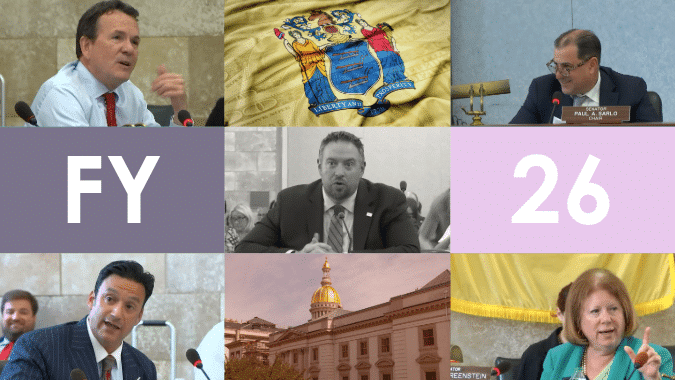NJBIA and the New Jersey Society of Certified Public Accountants are urging Gov. Phil Murphy to sign legislation that will create a more transparent state budgeting process and provide a clearer understanding of the state’s complete financial situation.
The bill, which received final passage in the Assembly on June 30 and is now on the governor’s desk, would require the state auditor to publish a user-friendly report summarizing the Annual New Jersey Comprehensive Financial Report, a voluminous and technical document which details revenues, costs, assets, and liabilities to convey the state’s overall fiscal health.
The legislation, A-4090/S-1884 (Freiman/Pintor Marin/Karabinchak/Sarlo/Oroho) is intended to provide a clearer, easy-to-read understanding of the state’s comprehensive financial situation, which includes off-budget items such as long-term liabilities and the operations of independent state authorities that are not captured in the annual budget document.
NJBIA President and CEO Michele Siekerka and NJCPA CEO & Executive Director Aiysha (AJ) Johnson noted the bill has the strong support of their colleagues in the New Jersey Business Coalition, which previously sent a letter of support signed by more than 90 coalition members to the governor and legislative leaders.
“The business community certainly supports this bill, as you can see from the attached May 1, 2023, letter from the New Jersey Business Coalition,” Siekerka and Johnson wrote in an emailed letter to the Governor’s Office on Wednesday. “However, its positive impact goes far beyond the business community. It benefits all sectors of the public and lawmakers by providing a better understanding of the state’s comprehensive financial picture.
“Lawmakers, the media and the public typically focus almost exclusively on the annual state budget and overlook New Jersey’s overall financial health and what comes after the budget bill,” Siekerka and Johnson wrote. “That is covered in great detail in the Annual Comprehensive Financial Report (ACFR), which contains the full audited financial statements for the primary government, as well as all component units of the State.”
However, the ACFR generally extends beyond 400 pages and is filled with an overwhelming amount of technical accounting language, which is why it is typically ignored. Many people are unaware the ACFR even exists. A more user-friendly summary would make lawmakers, the news media and the public more knowledgeable about the state’s true financial condition.
“We believe this legislation would play a critical role in educating all parties on the state’s fiscal condition, which will bring more transparency and provide for better policy making,” Siekerka and Johnson wrote.

